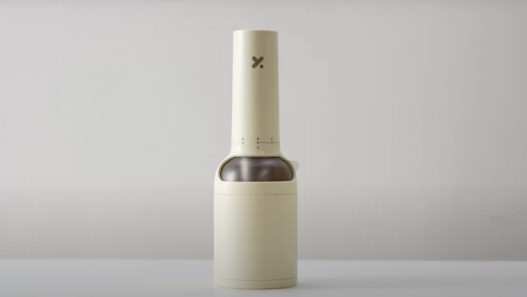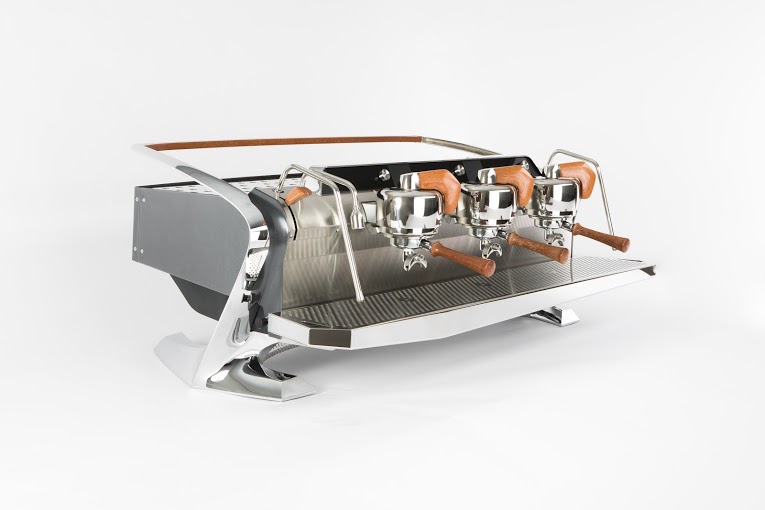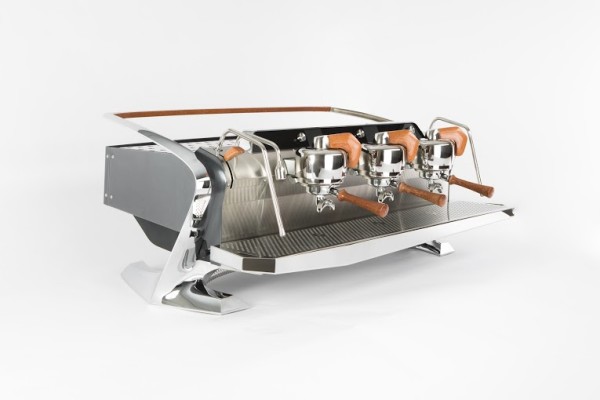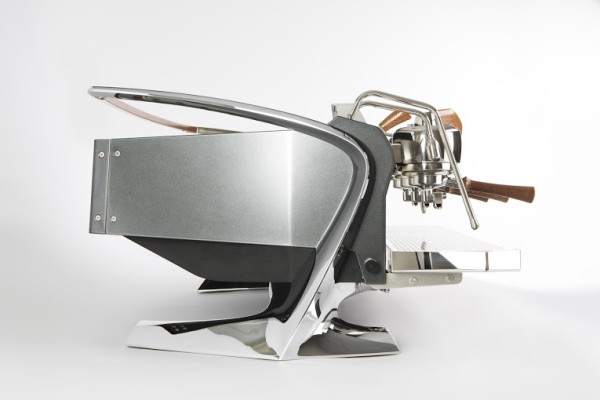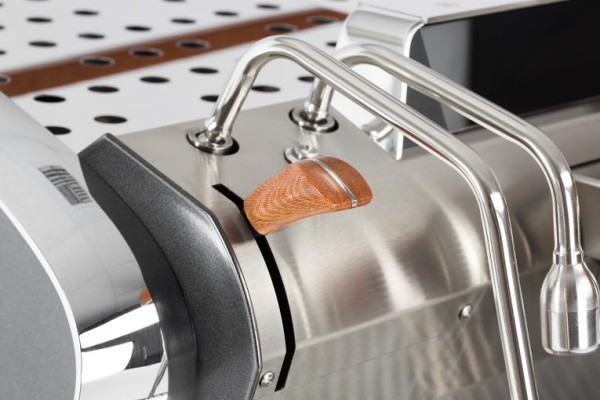Breaking news from the annual World of Coffee trade show event here in Dublin, Europe’s largest coffee gathering, where Seattle-based Slayer Espresso have unveiled a brand new espresso machine: the Slayer Steam.
The result of a significant R&D effort at their headquarters in Seattle’s SoDo neighborhood, our friends & partners at Slayer claim that the Steam is nothing short of espresso technology’s “first modern development to focus on the interaction with milk.” A rethought approach to milk steaming is at the core of this new machine, which promises to “enable coffee professionals to coax out unseen levels of gloss, sweetness, and creaminess” from their milk-based coffee beverages, as per an official Slayer press release, out today.
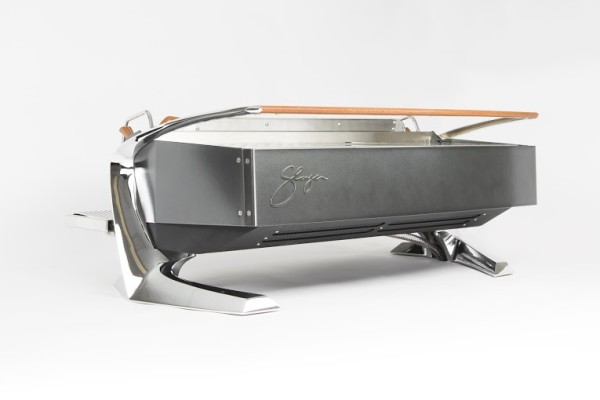 This steam technology is centered around what they’re calling “the patent-pending Vaporizer™”, an in-line super heater with the ability to create a “dry steam” for increased control. This super heater essentially allows for PID controlled steam temperatures, without altering the bars of pressure being put into the milk—allowing for an ideal 1.5 bars of pressure to be exerted at 300 degrees or more, with the overall effect of creating a creamier, sweeter milk drink without added sugar.
This steam technology is centered around what they’re calling “the patent-pending Vaporizer™”, an in-line super heater with the ability to create a “dry steam” for increased control. This super heater essentially allows for PID controlled steam temperatures, without altering the bars of pressure being put into the milk—allowing for an ideal 1.5 bars of pressure to be exerted at 300 degrees or more, with the overall effect of creating a creamier, sweeter milk drink without added sugar.
Beyond milk, the Slayer Steam also represents a technical rethink of the Slayer espresso machine’s work flow and ergonomics, with a focus on high volume coffee bar settings. Tweaks include the addition of flow meters, an adjustable height drip tray, improved aesthetics around concealing the machine’s power cord and water line, and ergonomic-minded placement of implements like the steam actuator knob. Slayer partnered with coffee professionals in the Pacific Northwest to develop these tweaks, including Sam Schroeder of Olympia Coffee Roasters, Brandon Paul Weaver of Slate Coffee, and Natalie Stevens, an independent barista formerly of Canlis. Career coffee pro Sarah Dooley joined the Slayer team in early 2016 as an educator and brand developer around this project, joining Slayer founder Jason Prefontaine, who has long dreamed of an improved milk steaming experience for his espresso machine.
“When I started Slayer,” Prefontaine tells Sprudge, “I was a roaster and I wanted to make my coffee better. That’s it. The objective wasn’t to solve pressure profiling or anything like that, it was simply how to make my coffee better.” Prefontaine & Co. believe the Slayer Steam is a significant iteration along this chosen path, especially when it comes to creating delicious, popular, bottom-line essential milk drinks in a busy cafe environment.
“Slayer Steam’s Vaporizer technology flash heats steam to programmable presets between 300-350F,” says Dooley, who has, among other career accomplishments, competed at the United States Barista Championship and served coffee at the TED conference. “We are effectively developing the flavors in the sugars via caramelization and proteins via Maillard reaction. The result is a molecular change in the restructuring of sugars and proteins or a longer more complex molecular chain. Or simply put, it tastes sweeter and has a decadent, more creamy mouthfeel then standard steam temperatures produce.”
Molecular strands, sugar restructuring—without getting too far into the jargon, it’s clear this is an entirely new approach for the Slayer brand, whose original machine drew worldwide attention for its tight focus on manual espresso profiling—and its then-astonishing original price point. Whereas the original Slayer retailed for as much as $22,000 back when it made Bloomberg News headlines, the new Slayer Steam is offered in a 2-group model for $15,500 USD, with some price variation based on global distribution.
The new Slayer Steam launches today—this morning, right now—in Dublin, and is offered in both 2-group and 3-group models, each with powder-coated side/rear body panels in multiple colors. All of these machines are produced in Seattle, and much more information is available at Slayer’s official website.
Jordan Michelman is a co-founder and editor at Sprudge.com. Read more Jordan Michelman on Sprudge.









